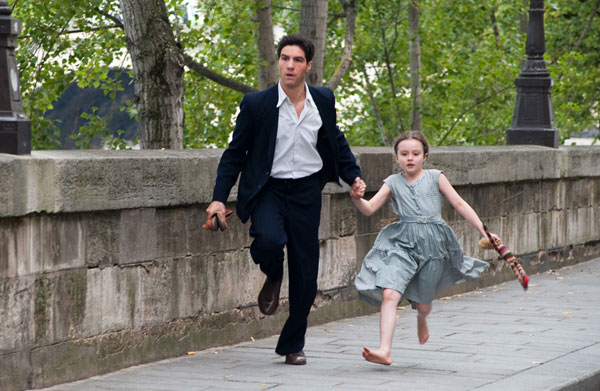Free Men

During the German occupation of France, Algerian black-market dealer Younes (Tahar Rahim) finds himself caught in the crossfire between an unsympathetic police force, whose prerogative feels increasingly blemished through a growing Nazi presence, and the French Resistance, with whom his cousin, Ali (Farid Larbi), is connected. Finding refuge in the city’s mosque, run by the earnest Si Kaddour Ben Ghabrit (Michael Lonsdale), Younes becomes entangled in a number of increasingly dangerous encounters between the opposing forces.
New to both director and lead, the experience of watching Free Men was surprisingly fresh, given the well-trodden central idea. A flair adorns the picture’s construction which, occasionally feeling a little cut-and-paste, works satisfactorily in building up tension. This tension is what drives the film; the numerous shifts are often successful in wrong-footing you, leading off in a direction not entirely suspected. Being set in such a tempestuous point in history, these feigned events are contextually relevant; one can only imagine the importance of secrecy and trust and the ultimatum of double-crossing in such uncertain times. Regardless, it does feel that the film could have pushed a little harder at certain narrative junctions, to take you deeper into places where the outcome is unknown.
Tahar Rahim’s portrayal of a paltry black-market-dealer-turned-police-informer, and eventually spy, is played with a cool and compelling, yet unassuming, charm. His employment of “less-is-more” constructs a performance of muted complexity which offsets successfully to the film’s “inspired by real events” backbone. Director Ismael Ferroukhi successfully teases out noteworthy performances in all the lead players; from Michael Lonsdale’s sage-like weariness to Mahmud Shalaby’s (as Salim Halali) ambiguous and seductive bar singer, the cast are effective and efficient.
Ferroukhi also proves himself skilled in navigating budgetary constraints, successfully extracting a sense of the 1940s Parisian-Muslim world through well-chosen angles and locations. Yet, most importantly, this resourceful approach never feels at the expense of the film’s visual pleasures. Free Men is often a very attractive film to watch: from the pure and serene mosque interiors to the open expanse of French countryside, the aesthetically diligent combines with the emotionally rich to evoke some surprisingly dramatic images. Accompanying the strong cinematography are numerous Arabian-tinged musical numbers, most of which are sung by Salim. These add a great dose of colour and personality to the picture. The score is, in itself, a character, recognisably humming the spirit and origins of the homeland, regaling the past, meditating upon the uncertainty of the future. These musical interludes also act to magnify the sequences situated directly around them: discreet and uncertain exchanges can suddenly be punctured by a stunning throated warble, a thud of a drum and an excited lick on an Arabian flute. In an instance, the music can also reflect the fear and pain of the present.
Free Men provides enough flair and excitement as a period thriller to sustain itself throughout its running time, yet it is the subtle narrative feigns, intriguing ambiguity, unassuming hero and burning subtext which elevate it above the pack.
David Houston
Free Men is released in select cinemas on 25th May 2012.
Watch the trailer for Free Men here:























Facebook
Twitter
Instagram
YouTube
RSS